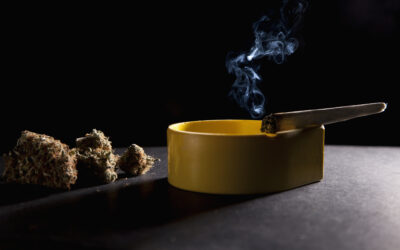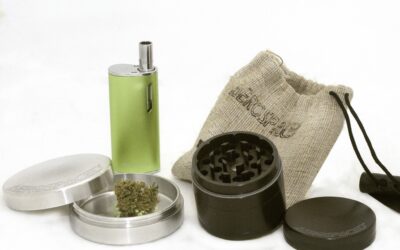Key Points
- Today’s marijuana is stronger and more dangerous. THC has jumped from 2–5% in the 1990s to over 90% in today’s concentrates and edibles, fueling psychosis, schizophrenia, suicidal thoughts, and addiction, especially in teens.
- Legalization harms youth. States that legalized pot have seen sharp rises in youth use, even among middle schoolers. Vapes and edibles in candy flavors lure kids. Detroit schools saw drug incidents spike by over 500% post-legalization.
- Public health and mental health are at risk. Nearly 1 in 3 users now has Cannabis Use Disorder. ER visits, hospital stays, and poison control calls are up, many involving children. PBS spotlighted a murder tied to a cannabis-induced psychosis.
- Addiction-for-profit: Big Marijuana = Big Tobacco 2.0. Altria (Philip Morris) and others are pouring billions into pot, lobbying Harrisburg to legalize for profit, at the cost of public safety.
- Legalization increases traffic dangers. AAA found that over half of users drive high, often within an hour. Legal states see up to 1,400 extra traffic deaths a year. In PA, that could mean 1,000 more crashes and 40+ deaths annually.
- Law enforcement and medical experts are opposed. The PA Fraternal Order of Police, PA Chiefs of Police, and District Attorneys all oppose legalization, along with top pediatric and psychiatric associations.
- The black market thrives despite legalization. Most marijuana sales remain illegal in states like California and New York. Oregon has spent $46 million fighting black market pot, with little success.
- The revenue myth. Gov. Shapiro’s plan relies on over 250 million joints smoked yearly. In Colorado, every $1 in pot taxes costs $4.50 in health and social fallout. Marijuana revenue is less than 1% of state budgets.
SUMMARY
“The meteoric rise in marijuana potency and the development of concentrates with dangerously high THC levels have made marijuana stronger, more addictive, and increasingly linked to mental health problems and impairment that impact driving, schools, and workplaces. Behind all of this, large corporations in the marijuana industry view addiction-for-profit as their next business venture, with Pennsylvania as their next target.” – PA Family’s Dan Bartkowiak, Don’t Let Them In – Pennsylvania Must Not Lose To The Marijuana Industry, Broad + Liberty, 6/11/25 The Consequences of Marijuana Legalization Evidence continues to mount that today’s marijuana is harmful, increasingly addictive, and that legalizing it for recreational use will worsen conditions for Pennsylvania families and communities. PA Family Council strongly opposes efforts to legalize marijuana for non-medical (recreational) use in Pennsylvania. While making changes to Pennsylvania’s current medical marijuana program or reforming aspects of the criminal justice system may be worthy discussions, they should be handled separately from any push to legalize today’s industrialized and highly manufactured marijuana products for non-medical use. Modern Marijuana: A New, More Dangerous Drug Today’s marijuana is far more potent than in previous decades. The level of THC—the psychoactive component that produces the high—has skyrocketed with modern marijuana. Products like edibles and concentrates now regularly exceed 90% THC. This surge in potency is a driving factor in the widespread use of marijuana, which is now at an all-time high. According to the National Survey on Drug Use and Health, marijuana use has doubled and daily use has quadrupled over the past two decades. This increased use of high-potency marijuana correlates with a rise in addiction—especially among youth—as well as growing mental health concerns, including psychosis, depression, and suicidal ideation. Legalizing the commercial sale of today’s powerful marijuana would worsen these issues in Pennsylvania. As the Pittsburgh Post-Gazette Editorial Board warns, “Scientific studies are increasingly recognizing the risks of cannabis use disorder and the drug’s associations with mental health disorders, at the same time, much higher potency products are becoming available.” Public Health at Risk Cannabis Use Disorder (CUD) now affects nearly one-third of marijuana users, with the highest rates among younger populations. Pennsylvania-based studies show that in states experimenting with marijuana legalization for recreational use, youth usage has increased, driven by easier access, higher potency, and aggressive marketing. Large, Big Tobacco-style corporations dominate the marijuana industry in legalized states. In states like Colorado, pot shops now outnumber Starbucks and McDonald’s combined. These businesses heavily market high-potency products in kid-friendly formats, such as fruit-flavored edibles and colorful vape pens. In Michigan, for example, Detroit’s largest school system saw a troubling spike in student marijuana use following legalization, driven largely by the “proliferation and consumption of marijuana edibles and vape pens.” According to the superintendent, the district has experienced a “distressing escalation in drug-related infractions.” Public Safety at Risk States that have legalized recreational marijuana report increases in DUIs, traffic crashes, fatalities, and workplace accidents. As the American Automobile Association (AAA) states, “Emerging research on the effects of liberalizing cannabis use portends negative implications for traffic safety.” Research shows that up to 1,400 more traffic deaths per year occur in legalized states. For Pennsylvania, that could translate into at least 40 additional fatal crashes and over 1,000 more accidents annually. Law enforcement organizations—including the Pennsylvania Fraternal Order of Police and the Pennsylvania Chiefs of Police Association—are firmly opposed to marijuana legalization for recreational purposes, citing serious public health and safety concerns. The False Promise of Revenue The argument that marijuana legalization will generate significant tax revenue is misleading. It fails to account for the substantial economic and social costs tied to increased marijuana use and commercialization. The Centennial Institute found that for every $1 in marijuana tax revenue in Colorado, $4.50 in related social costs were incurred—costs linked to healthcare, traffic safety, addiction treatment, and more. Dr. Tom Copeland, former director of research at the Centennial Institute, noted: “For Pennsylvania, any short-term revenue increase will be swallowed up by the serious long-term social and economic effects of legalization.” An analysis by the advocacy group More Than 28 found that to meet Gov. Josh Shapiro’s revenue projections, Pennsylvania would need to sell more than 25.5 million eighths of marijuana annually. That would require over 250 million joints consumed each year by the state’s adult population—an unrealistic and troubling scenario. As PA State Rep. Clint Owlett warns: “The most likely scenario is a relatively small percentage of the Commonwealth’s population will become daily habitual users, putting their health and lives at risk…The amount of marijuana [Gov. Shapiro] would have to sell to meet his spending demands is significant.” “How does adding more drug locations — whether state-run or privately owned, Black-owned or white-owned — help rebuild families shattered by addiction? The color of the business owner doesn’t change the harm the product causes.” Former PA Superior Court Judge Cheryl Allen, Marijuana will hurt, not help, vulnerable communities, Pittsburgh Post Gazette, 12/17/24 Conclusion “The legalization of recreational marijuana will take a human toll in Pennsylvania.” —PA State Senator Scott Martin Legalizing recreational marijuana is a dangerous policy experiment with wide-reaching consequences. Rather than follow the failed paths of other states, Pennsylvania should prioritize strengthening its medical marijuana program and protecting public health, safety, and youth from the damaging effects of commercialized marijuana.
TAKE ACTION
Take Action: Tell Your Senators and Representatives to Oppose Marijuana Legalization for Recreational Use in PA
Act Now
Related Articles
Watching the Capitol: A Pro-Family Response to Governor Shapiro’s 2026 Budget Address
Each year, the Governor’s budget address sets the tone for the legislative battles ahead. This week, Governor Josh Shapiro delivered his proposed 2026–27 budget to a joint session of the General Assembly, outlining what he views as Pennsylvania’s priorities for the...
Federal Government Closes Hemp Loophole, Banning Intoxicating THC Products Nationwide
By Dan Bartkowiak, Part of the government funding bill that President Donald Trump just signed is new regulation on hemp-derived THC products, marking a major victory for public health and safety. What changed? There had been a dangerous loophole in the 2018...
PA Lawmakers Pass 2025-26 State Budget
HARRISBURG, Pa. (Nov. 13, 2025) – Over four months past the June 30th deadline, the Pennsylvania Legislature has finally passed and Gov. Shapiro signed a state budget for the 2025-26 fiscal year. While the final deal avoids immediate tax hikes and includes some...
Big Weed’s Trojan Horse: The Push Behind Pennsylvania’s Senate Bill 49
By Dan Bartkowiak, Chief Strategy Officer, Pennsylvania Family Council Last week, while most Pennsylvanians were focused on daily life, the marijuana industry’s lobbyists were hard at work in Harrisburg. The “Big Weed” machine — national and state lobbying groups...
“Marijuana Stole My Son”: A Pennsylvania Mother’s Warning to Lawmakers
When Jennifer looks at her son today, she sees both a young man she loves deeply and a life that has been tragically altered. She has spent the last decade navigating a nightmare she never imagined when her son first experimented with marijuana as a teenager. “I mourn...
Five Reasons PA’s New Marijuana Bill Is Terribly Irresponsible
By Dan Bartkowiak It’s National Marijuana Facts Week, an opportunity to highlight the real harms of high-potency THC. Yet, sadly, here in Pennsylvania, two State Senators used this week to go in the opposite direction of public health and safety by introducing what...






